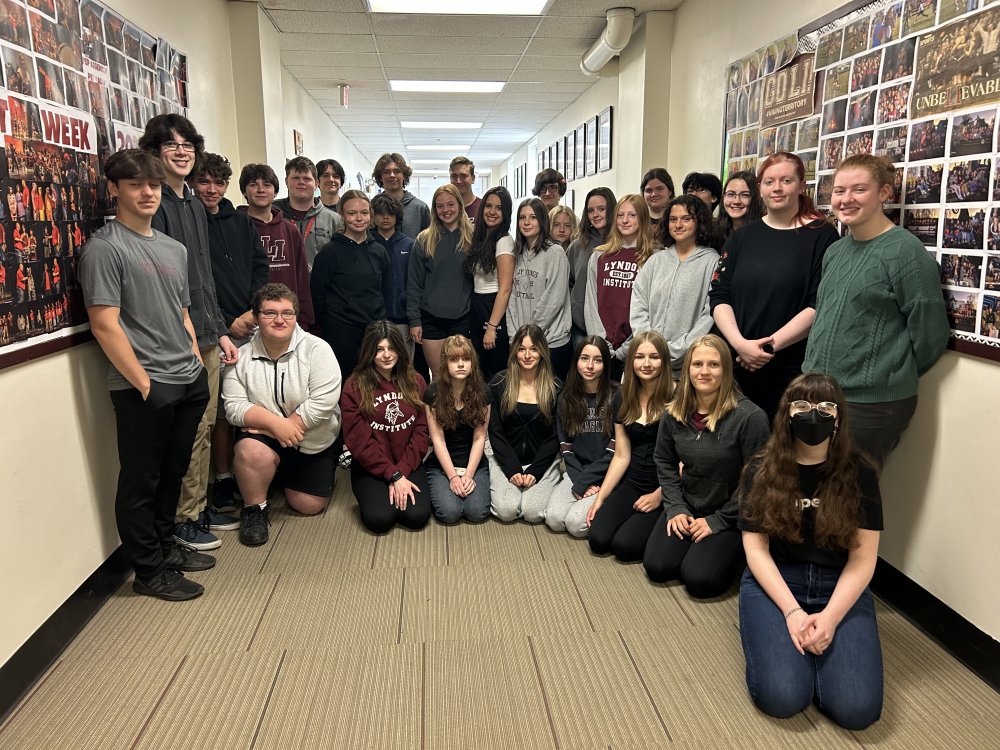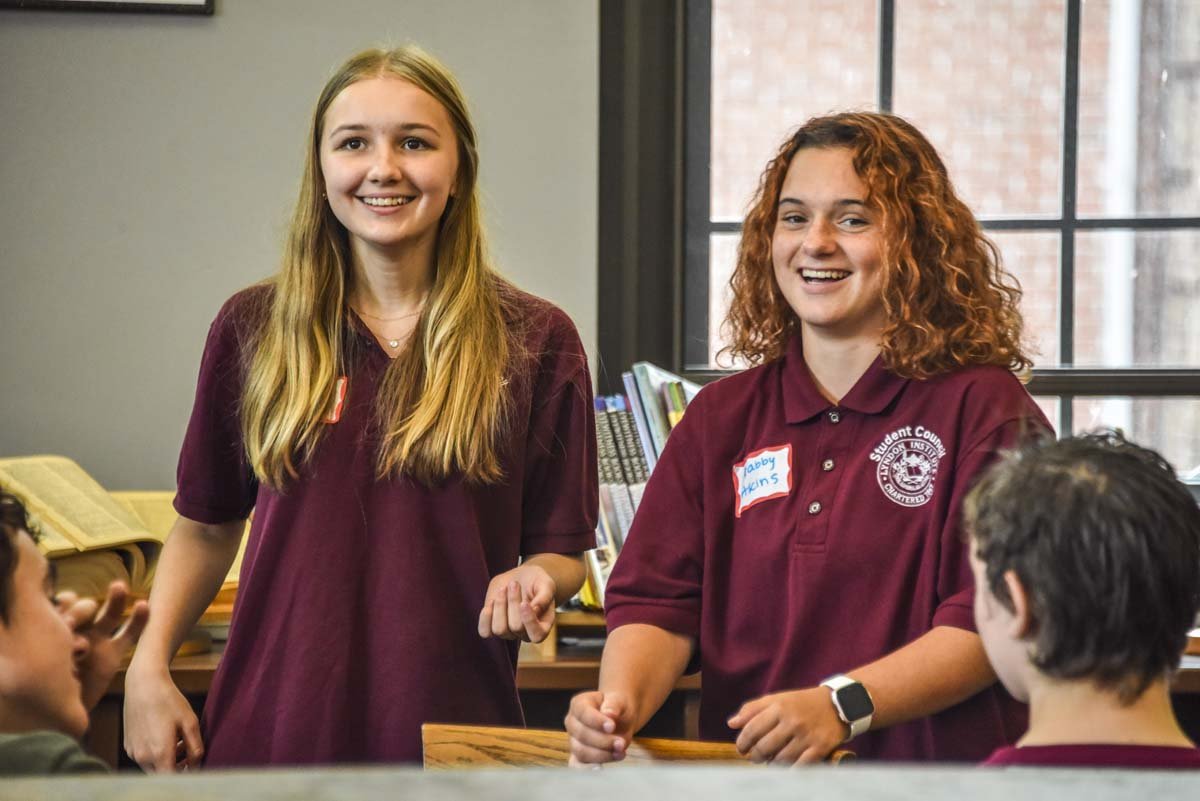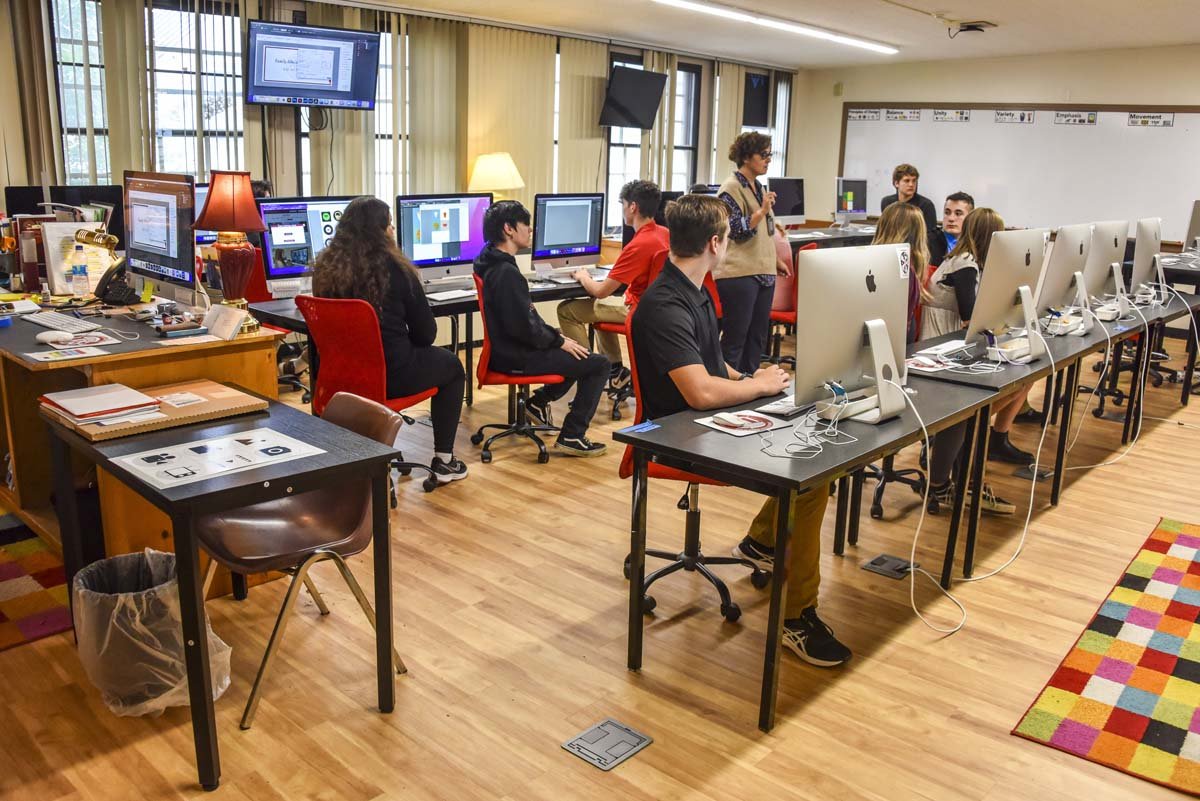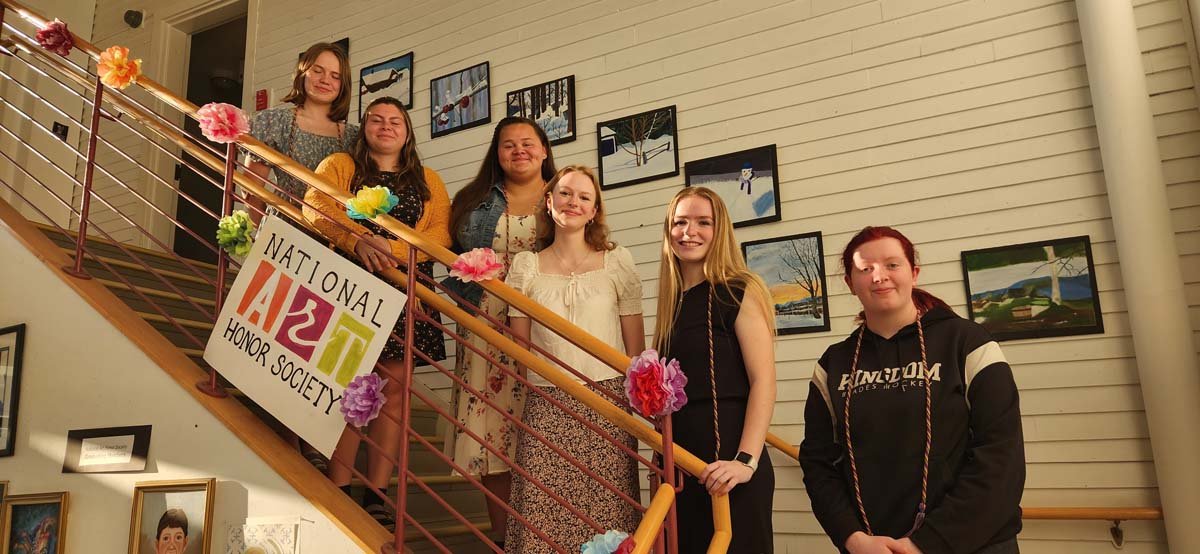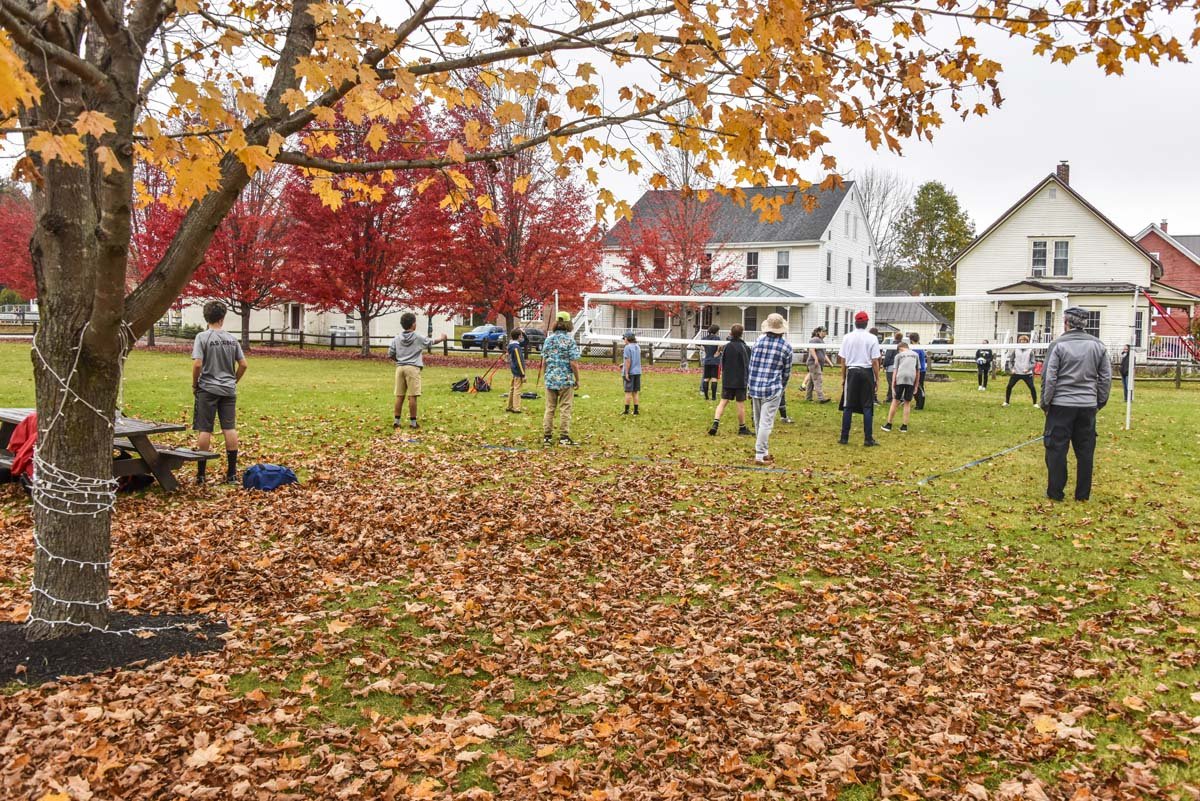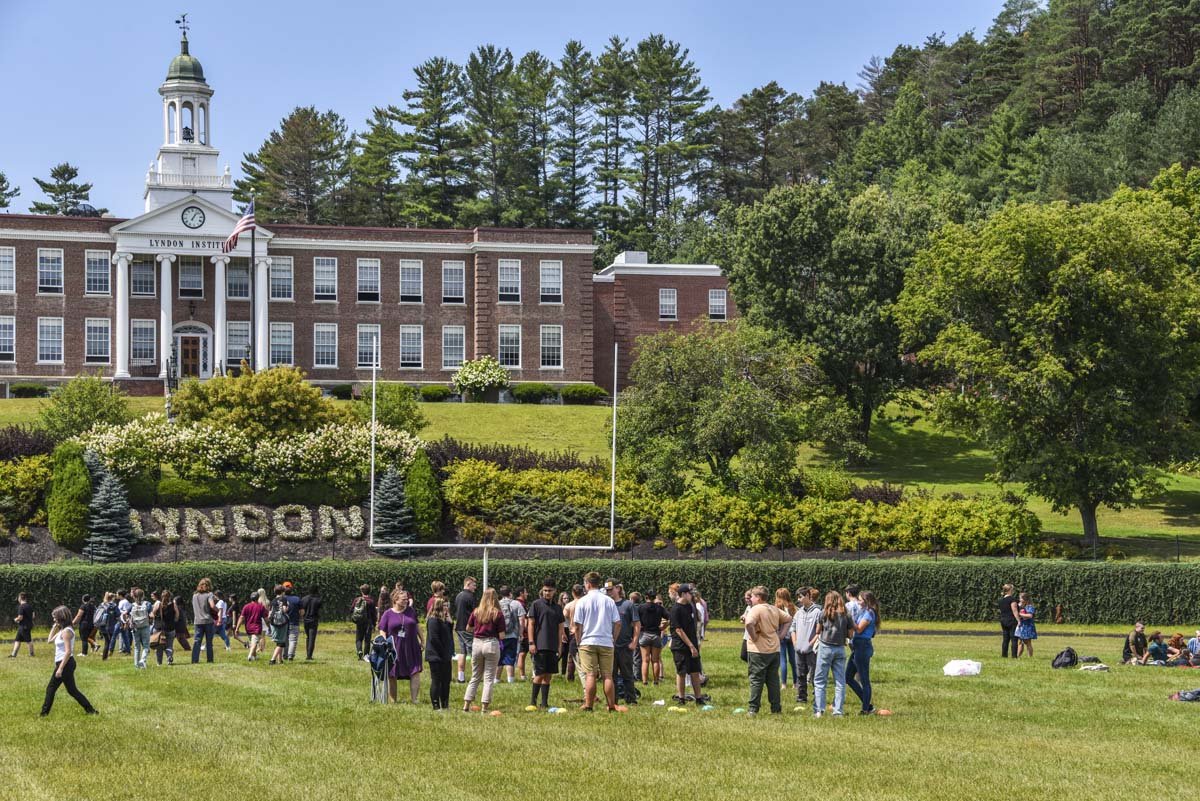- Our School
- Admissions
-
Academics
- Divisions and Faculty
- Commencement 2024
- January Term
- International Program (ESOL)
- College and Career Counseling
- Upward Bound
- Library/Monahan Academic Commons
- Career/Technical Education
- Lyndon Learning Collaborative
- Flexible Lyndon Institute Pathways (FLIP)
- Specialized Instruction
- Adult Continuing Education
- Lyndon Institute Course Catalog
- Student Services
- Arts
- Athletics
- Campus Life
- Support LI
- Alumni
« Back
The Gift of History: Model Berlin Conference Gives LI Students a New Take On the Past
June 7th, 2023
The Gift of History: Model Berlin Conference Gives LI Students a New Take On the Past
By David Stahler Jr.
“Germany moves for five minutes of unmoderated caucus.”
“Italy seconds.”
Belgium, France, the United Kingdom, and Portugal join to vote in the affirmative. Delegates swirl about the room, wheeling and dealing, jotting down proposals and signing off on potential plans for the African continent, plans they’ll bring before the full assembly in the hopes of having their resolutions approved.
It’s not 1884. It’s not Berlin. It’s May 2023 and I’m watching a group of students in Kathy Smith’s Sophomore Humanities Honors social studies class.
Smith’s idea for a “Model Berlin Conference” was inspired by LI’s “Model UN” club, started a few years ago by fellow social studies teacher Nikki Berry and now offered as a January Term class. To culminate their late-19th century Imperialism and African Empires unit, Smith thought the simulation model seemed like an interesting and engaging way to bring their studies to life.
“It’s not about trying to rewrite history,” Smith said. “It’s more about the idea of the gift of history. If you knew the long-term consequences of your decisions, would you do things differently?”
The real Berlin Conference, held in 1884-85, saw European powers come together essentially to carve up the continent of Africa in order to regulate trade and colonization and, in doing so, avoid conflict between themselves. With no African representatives present, the resulting partitions—many of which ignored existing borders and cultures—led to decades of exploitation and conflict throughout Africa.
The history—which the students learn before the conference and reflect upon afterward—informs the students’ simulation.
“The challenge of revisiting this event is a difficult one,” Smith said. “How are the European powers these students are assuming the roles of going to meet their needs while considering their impact on the African continent? Are they going to make things better or just different?”
Before the conference even begins, students form groups of two or three, each of which is assigned a European power. They must research their assigned country as it stood at the time of the conference. What needs did it have? What did it have to offer? They must also research one or more African empires of the day to understand their history and culture. The students study maps, anthropological elements, the interplay of various societies. From this study, they form a position paper that lays out their country’s needs and what they might possibly do to achieve them. The ultimate goal of the project is to have one or more of their country’s resolutions, ones that will benefit themselves and their allies, adopted by the end of the project.
This “Berlin Conference” plays out over two days. As day one opens, a nervous quiet dominates the room. Smith reassures her students. “This is not a competition. There are no winners or losers here. On this first day I’ll be giving you a lot of guidance. By day two, you’ll be doing this on your own. Trust me!”
She gives the groups fifteen minutes to organize and review their proposals, and then they’re off, with Smith acting as moderator (complete with a loud wooden gavel).
It begins with a roll call, followed by “preambulatory” opening speeches in which groups are given one minute to present their country’s case—what kinds of things they’re looking to gain (in some cases irrigation rights, farmland, or access to iron deposits) and what they have to offer to their allies or the native populations within the African countries (such as industrial products or military assets)—essentially expressing their needs based on their country’s strengths and weaknesses. Throughout these presentations, representatives of the other countries take careful notes to use later on during the negotiations process.
When they’re finished, Smith cautions the groups. “Are you going to get everything you want? Not likely—unless you’re a very skilled negotiator. You’re probably going to need to make some compromises. That’s what the caucus part of this experience is about.”
This is where things get interesting. The Conference now moves to a forum that shifts between moderated and unmoderated caucuses. The moderated caucus comes first, with both Smith and members posing questions and with countries queuing up to answer in turn.
Smith’s questions tend to be high-level questions that can put groups into difficult conversations and interactions: What regions of the African continent do Europeans want access to? Are there other ways the Europeans can meet their needs? How should the needs of the African people be addressed? How will you address past practices and remedy relationships moving forward?
Students are shy at first, nervous to speak up. But Smith’s prompting begins to draw them out and as the morning unfolds, groups grow more confident. How countries answer her queries often leads to other countries asking follow-up questions based on the answers they hear. By the end of day one, Germany has begun questioning the UK about its claims to the Suez Canal. Before long, the UK finds its back against the wall, with other countries gathering around Germany’s line of attack.
But there are differences from the original Berlin Conference as students make their presentations and answer questions. “One thing I’m hearing is that your countries want to help the countries in Africa,” she observes. When it comes to the people of Africa, everyone is being rather, well, nice. This in itself poses some interesting questions. “What happens when countries in Africa don’t want your ‘help’?” she asks them. “How will you establish trusting relationships?”
Day one ends with somewhat of a stalemate—initial proposals have been presented, notes taken, questions debated in moderated caucus. Day two, however, brings the real fun when countries motion to move to unmoderated caucus. At this point, the first day jitters seem to have receded and students get up and move about the room. Countries interact with each other in sidebar conversations, negotiating deals, offering counter proposals. The allotted time moves quickly, leading countries to extend the unmoderated caucus session numerous times.
“When you get a country to agree to something, write it down and get them to sign off!” Smith calls out over the buzzing discourse. “Avoid conflicting treaties. It’s going to come out later on—you don’t want to get stuck!”
“How specific do we need to be?” a student asks.
“As specific as possible. The more specific a resolution is, the easier it will be to get it accepted. And don’t forget, you can negotiate multi-nation agreements!”
Pretty soon, all shyness—and some of the earlier niceness—has fallen by the wayside. Students are now bolder with their requests, a little tougher in their negotiations, aided by a growing confidence in their knowledge of both their country and the regions of Africa that they are focusing on.
I asked Vincent Courtemarche and Maida Stahler—representing the United Kingdom—what they thought of the process.
“It’s interesting to see how we interact with each other without teacher moderation,” Courtemarche observed. “Some people seem more interested in working with each other. Others seem to be sticklers for the rules and in some cases picking fights.”
“I like it,” Stahler said. “It’s fun to do something that’s based on a real-life event from history. It’s nice to be able to go back in time this way.”
After joint resolutions and negotiated terms have been scribbled down onto “working papers” and signed off on, the factions move back to moderated caucus, during which they present their various resolutions to the whole body, which may then be questioned and which often require the entire group moving back into yet another unmoderated caucus to iron out misunderstandings or even brand new deals.
Several rounds later, once proposals have reached the point where they seem acceptable, countries start motioning for votes. Each resolution is voted on in turn. If the majority approves, the resolutions are adopted. The conference ends with, hopefully, each country having at least one of its resolutions accepted.
The project itself ends with students reflecting in an essay on their resolutions and their overall experience. For Smith, this retrospective is an important part of processing the experience.
“I want them to see how this event represents an important juncture in history,” she said. “They get to see how the legacy of colonialism ended up playing out. The Europeans didn’t understand what existed in Africa. They just thought it was there for the taking. Did it have to happen this way?”
The project also gives her a chance to apply many of LI’s recently adopted model of Transferable Skills to their work—in particular collaboration, clear and effective communication, and problem solving, all of which the students need to successfully navigate the process.
Combining a useful application of skills while deepening their knowledge of the content makes this project a powerful addition to the Humanities curriculum. While the past cannot be changed, the gift of history lies in the fact that it can be revisited and, in doing so, inspire change in those who are willing to learn from it.
Posted in the category Front Page.

